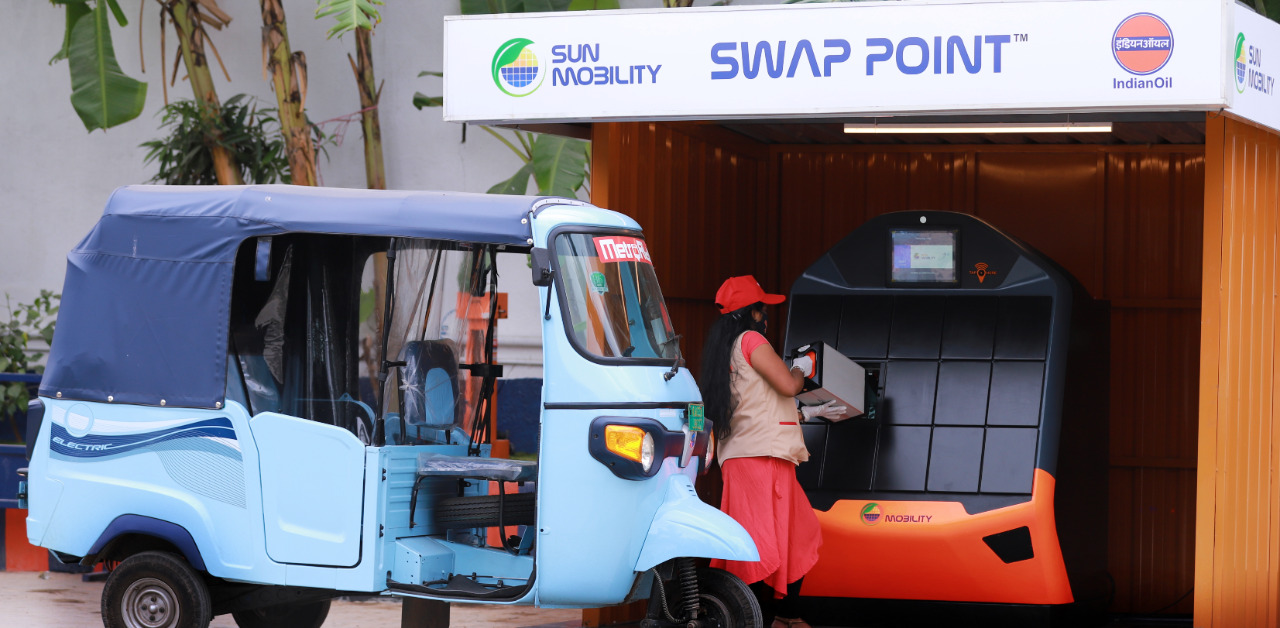The policy, which will be valid through March 2025, is targeted at electric two- and three-wheel vehicles “heavily concentrated” in urban areas
New Delhi, NFAPost: India proposed a battery-swapping programme to expedite the adoption of electric scooters and rickshaws as it tries to curb pollution and tackle climate change.
The policy, which will be valid through March 2025, is targeted at electric two- and three-wheel vehicles “heavily concentrated” in urban areas, according to a statement by the government policy-making body, Niti Aayog.
In the first phase, battery-swapping networks will be built in metro cities with a population of more than 4 million, while the second phase will cover cities with over 500,000 people.
While interoperability between electric vehicles and batteries is critical for safety and cost-effectiveness, the policy won’t set out rigid technical and operational requirements, leaving room for innovation, the statement from Niti Aayog said.
The plan will define interoperability for charging and discharging of EV batteries. Swappable batteries will have to be compatible with different electric models and with equipment in various battery-charging stations.
India will also extend incentives to electric vehicles running on swappable batteries based on their kilowatt-hour capacity under a new or existing subsidy program, according to the statement.
Decarbonising transport is crucial for India to meet its goal of becoming net carbon zero by 2070 and to catch up with other nations like China and the US, which are making a meaningful pivot toward electric vehicles.
Lack of charging stations, expensive upfront cost and range anxiety have hindered India’s switch to cleaner transport. By 2040, just 53% of new annual vehicle sales in India will be battery-powered versus 77% in China and 74% in the US, according to BloombergNEF.
India’s Finance Minister Nirmala Sitharaman in February said the South Asian nation needs battery swapping as it will be difficult to scale up traditional charging stations given the lack of space in crowded urban cities.
Delivery fleets in India are taking to the concept of swapping out a depleted battery and replacing it with a fresh one to do away with long charging times. The idea of swapping batteries hasn’t gained widespread acceptance outside of China.





